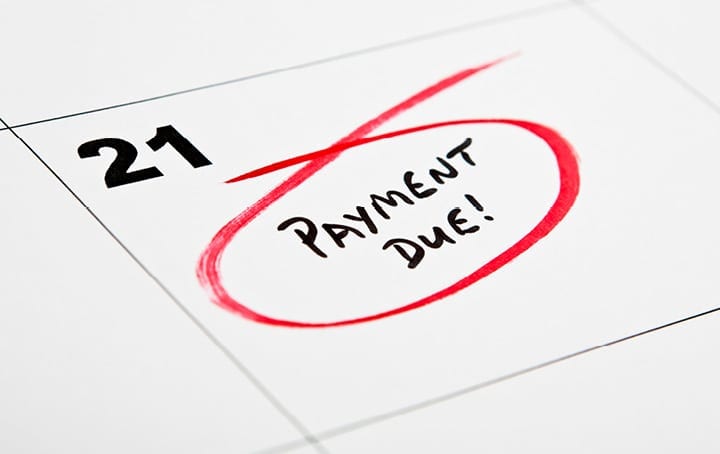Paying Company Tax Debts By Instalments - 20 July 2018

Does your business have a debt with the ATO?
Depending on your circumstances, you may be able to apply for a payment deferral, or work out a tailored payment plan with the ATO. It’s easy if you’re an individual or sole trader with a debt of $100,000 or less and can be done quickly online. For businesses with debts of more than $100,000 it may be more complex but if you act early there is still time to get the best outcome.
If your business has gotten into a bit of trouble lately and you suddenly find yourself faced with a tax debt, don’t panic. Despite what has been reported in the media recently, the ATO won’t bankrupt your business if you make early contact and make a genuine attempt to either pay or work out a payment arrangement.
Depending on your circumstances, you may be able to apply for a payment deferral, or work out a tailored payment plan with the ATO. Applying for a payment plan with the ATO is easy if you’re an individual or sole trader with an income tax or activity statement debt of $100,000 or less.
If you have debts of more than $100,000, that’s when you and your business may need to jump through a few more hoops. Usually, you would need to show the ATO that your business is viable, in that it has the ability to pay its debts and meet ongoing commitments. The assessment considers factors such as gross margin, cash flow, asset/liability position including working capital, liquidity, debtor/creditor position, and the availability of funding.
Typically, if your business has debts of more than $100,000 and you’re applying for a tailored payment plan, you will need to provide the following information to the ATO:
- proposal to pay all amounts owed in the shortest possible timeframe, while allowing all future tax obligations to be met by the due date;
- details of how the debt arose;
- steps taken to mitigate the debt (g. loans from banks or other sources);
- most recent bank statement for each bank or financial institution account held;
- detailed profit and loss (statement of financial performance) and balance sheet (statement of financial position) for the year to date and last two financial years;
- details of overdraft or loan facilities including term loans, hire purchase and leasing facilities (needs to include details such as balances owing, monthly repayment amount for each debt and limit for overdrafts);
- aged creditors and debtors listing; and
- any other relevant information.
Once your business has been assessed as viable and you enter into a payment plan with the ATO, you need to be aware that interest will continue to accrue on the unpaid debt until it is completely paid off. Small businesses with a good payment and lodgment compliance history may be eligible for interest-free payment plans for activity statement debts if they meet certain conditions.
If you default on a payment plan, the ATO may impose stricter requirements before agreeing to a new plan. Requirements may include a higher upfront payment, or for payments going forward to be made by direct debit, or both. In cases where you and the ATO cannot reach an agreement on a payment plan, all is not lost. If you’re willing to provide security such as a registered mortgage over a freehold property or an unconditional bank guarantee from an Australian Bank, the ATO may consider requests to defer the time of payment of a debt or payment by instalments.
Help! I Have An ATO Debt
If you have a debt, the most important thing is to make early contact with the ATO to ensure that they are aware of your situation. Contact us today and we can help your business prepare any proposed payment plan requests and liaise with the ATO to get the best outcome.
20 July 2018
For expert advice and assistance in dealing with your Tax Debt in Australia, please contact Mathews Tax Lawyers on 1800 685 829
Disclaimer: The information on this page is for general information purposes only and is not specific to any particular person or situation. There are many factors that may affect your particular circumstances. You should seek professional advice from a suitably qualified and licensed advisor before making any decisions.
